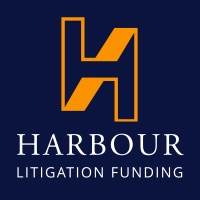11 April, 2018
Trust in businesses, charities, government and the media is at an all-time low. Whether it is unacceptable treatment of women, crass behaviour of NGOs, aggressive tax planning by household brands or the financial collapse of big businesses which only months earlier had been given the all clear, it is di cult to know which organisations to trust.
Every year, global PR giant Edelman surveys 33,000 people around the world as part of its annual Trust Barometer. It found this year that trust in governments has plummeted by 41%, the media by 43%, and that just 37% of its panel say they trust company CEOs – the lowest in the 17 years it has run the survey. Respondents told Edelman that the ‘system has failed them’ and that it is ‘unfair and offers little hope for the future’.
Businesses, charities and governments should be worried. They will have to work harder than ever to earn our respect, trust and our business.
Is this a failing of the PR and communications industry? It is, after all, our job to help build and manage reputations and show corporates how to put their best foot forward. No PR firm could successful argue that Oxfam’s staff were entitled to engage prostitutes in countries where it was administering aid or that it is acceptable to treat women unfairly in the workplace. And when a PR agency did act for unsavoury regimes and questionable business interests – well let’s just say it didn’t end well for Bell Pottinger.
Reputation is not just a problem for PR people, but for CEOs, heads of Legal, HR, IT and Finance. Corporate transparency is increasingly on government and regulators agendas. Financial reporting standards are tightening and include many non- nancial measures.
Reputation is now a boardroom agenda as it can have a serious impact on the bottom line and the sustainability of a business.
Future threats
The tide in acceptable behaviour has changed. What used to be normal or tolerated is no longer acceptable. Take for example the actions of Hollywood’s Harvey Weinstein and the treatment and harassment of women. Almost every industry is facing its #metoo moment. The now infamous Presidents Club dinner moved the focus to the property industry and left charities with difficult questions to answer.
The future threats to corporate reputation have their foundations in the actions of organisations and their people today.
Greater corporate transparency means businesses, charities and government can no longer fly under the radar. And that is a good thing.
The gender pay reporting obligations facing businesses in the UK may focus on pay gaps between male and female employees, but moves the debate towards the wider treatment of women in the workplace. It is not an issue that will go away.
Payment practices reporting, where organisations have a duty to report publicly on their payment practices and performance may not have caught the imagination in the same way as gender pay reporting has, but it will. Born out of the concern of the administrative and nancial burden faced by thousands of companies because they are not paid on time, it will not be long before enterprising journalists create league tables of the best and worst companies to supply.
On the other side of the coin, suppliers can cause real reputational damage as KFC discovered when its new distributor was not up to the job. When suppliers question their relationships, demand better terms or, in the worst case, refuse or are unable to supply an organisation, it may be too late to act. Increasingly, suppliers will be held responsible for the reputational damage they cause their clients and customers.
Prevention is better than cure
There is no magic bullet that will solve an attack on corporate reputation; bad behaviour has a habit of nding the light of day. These and future scandals will slowly and surely change the way businesses, charities and governments behave.
You may believe that customers or clients love your brand, but don’t be fooled. Failure to live up to expectations will see them go elsewhere.
What can you do?
PR and communications professionals should be at the heart of driving meaningful change, and not just there to defend or de ect undesirable behaviours. This will mean challenging senior
managers, business leaders and Boards. Many will not be up to the job.
They can guide businesses through change, addressing issues and breaking news stories, but always with a long-term aim in sight – to build a better business that listens. If that makes you or your senior colleagues uncomfortable then great – you are doing something right.
Coast is a PR rm working with professional services and property rms across the UK and around the world.
By Matt Baldwin, Joint Managing Director of Coast
For further information, please contact:
Ruth Stackpool-Moore, Director of Litigation Funding / Head of Harbour Hong Kong
ruth.sm@harbourlf.com





